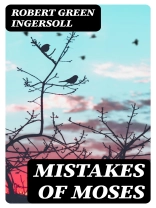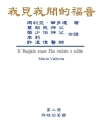In ‘Mistakes of Moses, ‘ Robert Green Ingersoll presents a compelling critique of the biblical figure, challenging established religious doctrines through a rational lens. This work exemplifies Ingersoll’s distinctive literary style, characterized by eloquent prose and incisive wit, as he navigates the intersection of religion, morality, and human experience. Set against the backdrop of 19th-century America, a period marked by rising secularism and intellectual inquiry, Ingersoll dares to question the veracity of the Scriptures in a way that both informs and provokes thoughtful discourse, inviting readers to reconsider traditional narratives surrounding Moses and the foundations of faith. Ingersoll, a prominent orator and advocate for freethought, was deeply influenced by the Enlightenment ideals of reason and scientific inquiry throughout his career. As one of the most celebrated agnostics of his era, he utilized his keen intellect and personal experiences—including the loss of his loved ones—to drive home his conviction that belief should be founded on evidence rather than dogma. ‘Mistakes of Moses’ represents a culmination of his challenges to ecclesiastical authority and societal norms, reflecting his broader philosophy that promotes inquiry over blind faith. This thought-provoking treatise is highly recommended for those seeking a deeper understanding of religious critiques and the evolution of secular thought. Whether you’re a scholar of religious studies, a seeker of truth, or simply curious about the interplay of faith and reason, Ingersoll’s incisive analysis provides a timely, relevant examination that resonates with contemporary debates over morality, belief, and the human condition.
Circa l’autore
Colonel Robert Green Ingersoll (1833-1899) was a prominent American orator, lawyer, and outspoken agnostic who gained considerable prestige in the late 19th century for his vigorous advocacy of free thought and humanism. His prodigious ability to articulate complex thoughts in compelling rhetorical flourish earned him the moniker ‘The Great Agnostic’. Ingersoll’s works address the intersection of science, religion, and humanism, with ‘The Mistakes of Moses’ being one of his most notable contributions. In this work, Ingersoll critiques the Judeo-Christian Bible and the literal interpretation of it, simultaneously encouraging a scientific and skeptical approach to the religious texts. Renowned for his eloquent speeches and essays, he became an intellectual beacon for secularism and rationalism, ardently opposing superstition and orthodoxy. His literary style is distinguished by clear, forceful, and often witty prose aimed to sway public opinion and provoke thought on theological and social norms of his time. Ingersoll’s legacy endures through his written and spoken words, which continue to inspire and challenge readers and listeners to question dogma and embrace reason.












